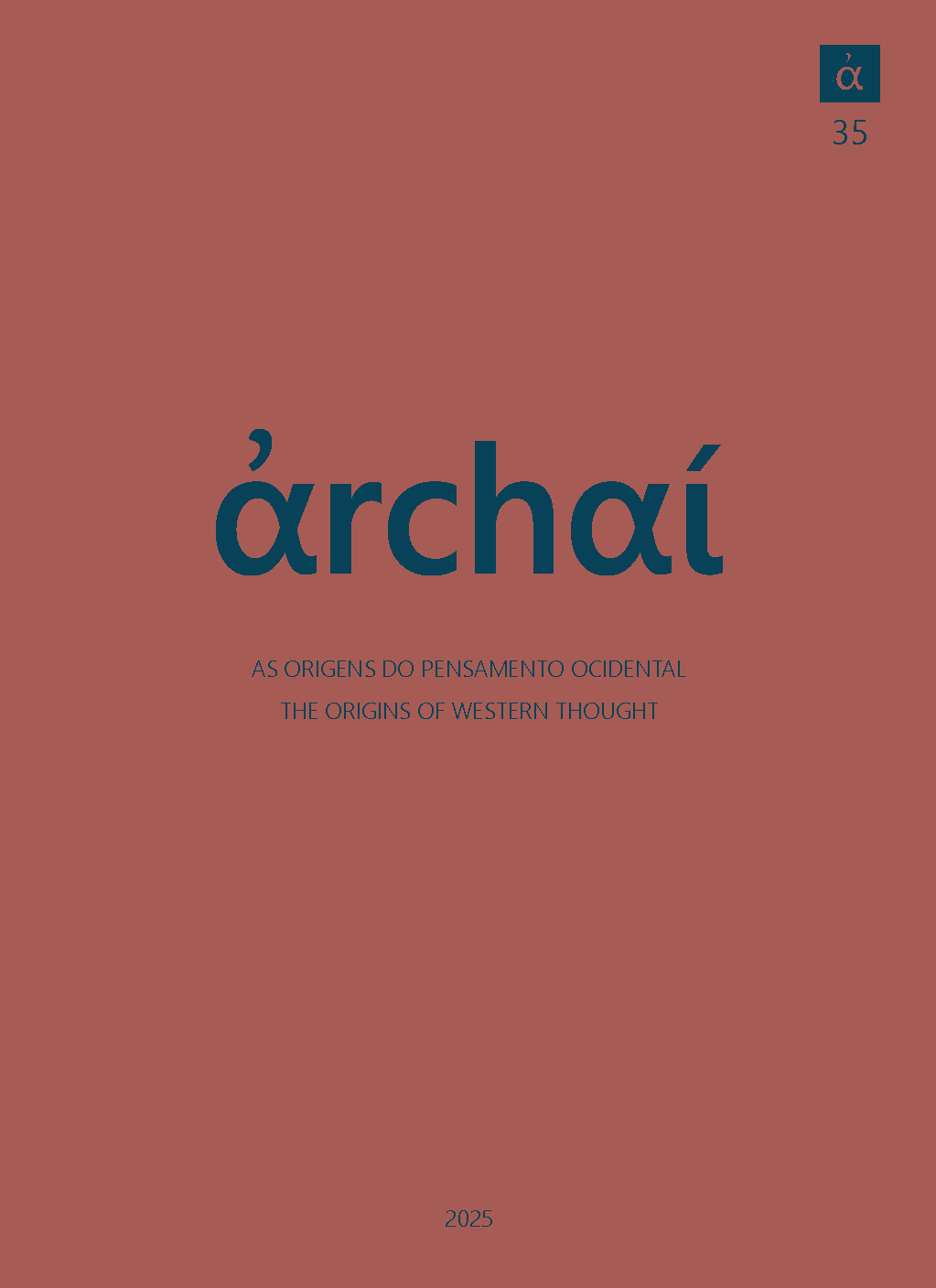Giving birth to ideas: Platonic epistemology as sexual metaphor
DOI:
https://doi.org/10.14195/1984-249X_35_12Keywords:
Maieutics, Socrates, Birthgiving, Idea, ConceptionAbstract
This paper intends to interpret the meaning of the sexual metaphor implicit to the midwife analogy expressed in the Theatetus. The “socratic method” is ilustrated as na intelectual practice comparable to birthgiving, but, inasmuch as the “birthgiving of ideas” is only one step of a proccess whose structure was extracted from the successive stages of human reproduction, the whole analogy deserves special attention. Exceptions aside, the costumary approach to this topic is to assume a provisory unterstanding – that is, the analogy aims at portraying the socratic method as a way of helping the interlocutor throughout the birthgiving of ideas – and, afterwards, the commentaries present voluminous logical analises of Socrates’ arguments. This way, stands out of view that the midwife analogy is na elaborate sexual allegory comprised by elements distributed among several dialogues. That being said, after a literature review, the paper argues that the διαλέγεσθαι repeats, at the symbolic level, the stages of which the sexual practice is comprised of: 1. seduction (e.g. Tht. 145e8-146a8); 2. insemination (see e.g. Tht. 149d5-e5 and Phdr. 277a1: σπέρμα); 3. gestation (i.e., the attemps at answering the questions posed by Socrates); 4.1 abortion (Smp. 203b9: ἀπορίαν; 203e4: ἀπορεῖ) ou 4.2 birthgiving; finally, when a genuine intelectual offspring is brought to light, 5. rearing
Downloads
References
ALTMAN, W. H. F. (2012). Plato the Teacher. The Crisis of the Republic. Lanham, Lexington Books.
BARATIERI, P. L. (2022). Da ambição à música: o Eros como caminho à perfeição no Banquete de Platão. Tese. Universidade Federal do Rio de Janeiro, Florianópolis, 2022.
BELFIORE, E. (2012). Socrates’ Daimonic Art. Cambridge, Cambridge University Press.
BLONDELL, R. (2002). The Play of Character in Plato’s Dialogues. Cambridge, Cambridge University Press.
BURNYEAT, M. F. (1977). Socratic midwifery, Platonic inspiration. Bulletin of the Institute of Classical Studies 24, p. 7-16. Reeditado duas vezes, primeiro em BENSON, H. H. (1992). Essays on the Philosophy of Socrates. New York and Oxford, Oxford University Press, p. 53-65; e depois em BURNYEAT, M. F. (2012). Explorations in Ancient and Modern Philosophy. Cambridge, Cambridge University Press, p. 21-35.
D’ANTUONO, M. (2019). The Meaning of Genus in Ancient Greek Philosophy up to Aristotle and in Thomas Aquinas. Studia Gilsoniana 8, n. 3, p. 515-545.
DUPRÉ, W. (1994). Patterns in Meaning. Netherlands, Kok Pharos.
ENGLER, M. R. (2011). Tò Thaumázein: A Experiência de Maravilhamento e o Princípio Psíquico da Filosofia em Platão. Dissertação. Universidade Federal de Santa Catarina, Florianópolis.
GRANIERI, R. (2021). Being as a Kind in Plato's Sophist. Tese. Universidade de Toronto, Toronto.
MOURA, A. R. (2012). Hesíodo. Os trabalhos e os dias. Curitiba: Segesta.
NUNES, C. A. (2011). Platão. Banquete. 3 ed. Belém, EDUFPA.
NUNES, C. A. (1973). Fedro. Belém, EDUFPA.
NUNES, C. A. (1973). Parmênides. Belém, EDUFPA.
NUNES, C. A. (2016). República. 4. ed. rev. e bilíngue. Belém, EDUFPA.
NUNES, C. A. (1973). Sofista. Belém, EDUFPA.
NUNES, C. A. (1973). Teeteto. Belém, EDUFPA.
PENDER, E. E. (1992). Spiritual Pregnancy in Plato’s Symposium. The Classical Quarterly 42, n. 1, p. 72-86.
RAWSON, G. (2006). Platonic recollection and mental pregnancy. Journal of the History of Philosophy 2, n. 44, p. 137-155.
TOMIN, J. (1987). Socratic Midwifery. The Classical Quarterly 37, n. 1, p. 97-102.
Downloads
Published
How to Cite
Issue
Section
License
Copyright (c) 2025 Renilson Bail

This work is licensed under a Creative Commons Attribution 4.0 International License.
Given the public access policy of the journal, the use of the published texts is free, with the obligation of recognizing the original authorship and the first publication in this journal. The authors of the published contributions are entirely and exclusively responsible for their contents.
1. The authors authorize the publication of the article in this journal.
2. The authors guarantee that the contribution is original, and take full responsibility for its content in case of impugnation by third parties.
3. The authors guarantee that the contribution is not under evaluation in another journal.
4. The authors keep the copyright and convey to the journal the right of first publication, the work being licensed under a Creative Commons Attribution License-BY.
5. The authors are allowed and stimulated to publicize and distribute their work on-line after the publication in the journal.
6. The authors of the approved works authorize the journal to distribute their content, after publication, for reproduction in content indexes, virtual libraries and similars.
7. The editors reserve the right to make adjustments to the text and to adequate the article to the editorial rules of the journal.














